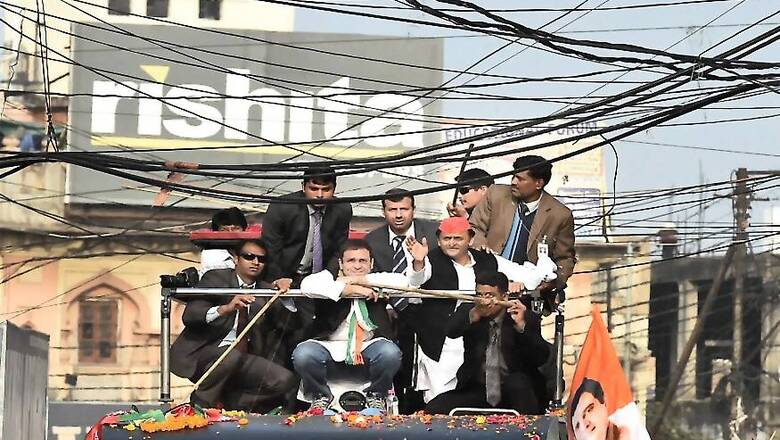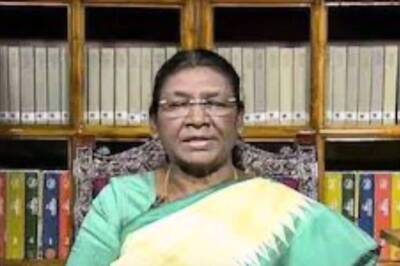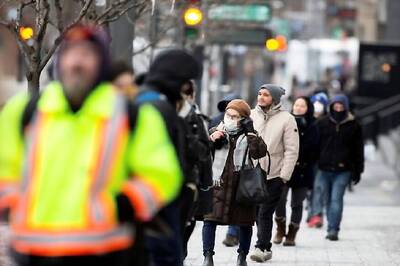
views
Lucknow: As parts of western UP and the region of Rohelkhand head to the polls in Phase 2 of Uttar Pradesh elections on February 15, it's the Muslim voters who will be key in deciding the fate of all, including the BJP.
While the Samajwadi Party-Congress alliance, the BSP and, in some pockets, the RLD are looking forward to minority polarisation in their favour, it’s the BJP which will definitely hope for division of this crucial vote bank. In the region where Muslim population is considerably high, even around 50 percent on some seats, their voting trend can well be a deciding factor. In all, 67 seats across 11 districts go to polls in Phase 2.
While the BSP has fielded 26 Muslim candidates, the Congress-SP alliance has given tickets to 25 Muslims. The RLD, too, has 13 candidates from the community. The race for the minority vote has been further made interesting, with 15 such seats, where both the BSP and SP-Congress and, in some cases, the RLD have given tickets to Muslims.
In Amroha, all three have fielded a Muslim candidate. In Deoband, it will be Majid Ali of the BSP against Mavia Ali of the Samajwadi Party. In the sensitive constituency of Kanth in Moradabad, it will be Annesurehman of the SP, Afak Ali Khan of the RLD and Md. Nasir of the Congress vying for the seat. The constituencies of Kundarki, Moradabad city and Moradabad Rural in the same district, too, have a similar situation.
No doubt the BJP will hope for division of the minority vote bank. In division of votes lies the road to success for the BJP on these and many other seats in Phase 2. In the 2012 Assembly elections, the BJP had won just 10 out of these 67 seats. The SP had won 34, BSP 18, and three seats were won by the Congress.
However, in the 2014 Lok Sabha elections, the BJP had swept across most of these Assembly segments. While minority communities had even then voted against the BJP, it was the counter consolidation of the majority community and the division of the minority vote bank that led to the BJP's spectacular success.
The question also is whether the minority card of the BSP and SP-Congress alliance lead to a certain degree of majority consolidation in BJP's favour. Political observers feel that it is a high possibility despite the fact that, in general, communal polarisation has not been that significant as it was in 2014 in the backdrop of the Muzzafarnagar riots of the year before.
While for the BSP, its Muslim-Dalit formula will be at test, the SP-Congress alliance is banking on its established and proven track record of having no truce ever with the BJP. The BJP, despite being stung by division of Jat votes in some pockets, will hope for confusion and division of the minority vote bank and a possible counter polarisation in its favour.
And if polling in Phase 1 is any indicator, then the minority communities surely remain in a state of confusion between the BSP and the SP-Congress alliance.




















Comments
0 comment